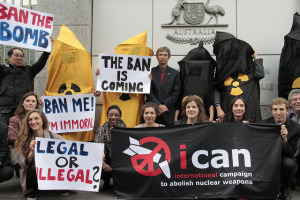
About kevinclements2012
Short CV
Professor Kevin P Clements.
I am the Foundation Chair of Peace and Conflict Studies and Director of the New Zealand Centre for Peace and Conflict Studies at the University of Otago, Dunedin New Zealand and Secretary General of the Toda Institute for Global Peace and Policy.
Prior to taking up these positions I was the Professor of Peace and Conflict Studies and Foundation Director of the Australian Centre for Peace and Conflict Studies at the University of Queensland, Brisbane Australia .
I went to Queensland from International Alert where I was Secretary General from January 1999 to September 2003. International Alert is one of the world’s largest NGOs working on conflict transformation. It pioneered innovative policy and practical approaches to conflict prevention and transformation in Africa ,Eurasia and Asia . It has also made a major contribution to the mainstreaming of conflict prevention within European Foreign and Development Ministries, the EU and a variety of UN institutions. During his time there I was on the Board of the European Centre for Conflict Prevention and past President of the European Peace Building Liaison Office in Brussels.
Prior to becoming Secretary General of International Alert I was the Vernon and Minnie Lynch Chair of Conflict Resolution at the Institute for Conflict Analysis and Resolution at George Mason University Fairfax Virginia USA 1994-2000 and Director of the Institute from 1994-1999.
My career has been a combination of academic analysis and practice in the areas of peacebuilding and conflict transformation. I was, for example, formerly Director of the Quaker
United Nations Office in Geneva and Head of the Peace Research Centre at the Australian National University in Canberra .Prior to this I was Senior Lecturer in Sociology and Coordinator of Peace Studies at Canterbury University, Christchurch New Zealand . My first academic position was as a lecturer in Sociology at Hong Kong University . I took up this position from a Post Doctoral Fellowship at Oxford University where I worked on development issues with Paul Streeten and others.
I have been an advisor to the New Zealand, Australian , British , Swedish and Dutch governments on conflict prevention , peace, defence and security issues and advised the German Government and the OECD on States and Violence. I was, a member of the New Zealand Government’s Defence Committee of Enquiry in 1985 and I currently conducting Problem Solving Workshops in North East Asia with high level participants from Japan, China and Korea.
Iwas President of the International Peace Research Association (IPRA) from
1994-1998, President of the IPRA Foundation from 1995-2000 and Secretary General of the Asia Pacific Peace Research Association. I was Secretary General of the International Peace Research Association 2008-2010.
I got my B.A, B.A Hon ( First Class) and Ph.D in Sociology from Victoria University of Wellington New Zealand. and held a Post-Doctoral Fellowship at the University of Oxford from 1970-1971.
I have been a regular consultant to a variety of non governmental and intergovernmental organisations on disarmament, arms control, conflict resolution, development and regional security issues and I have written or edited 7 books and over 160 chapters /articles on conflict transformation, peacebuilding, preventive diplomacy and development with a specific focus on the Asia Pacific region.
Research Expertise
1. Peace Research Theory- Conflict and Conflict Resolution Theory .
Preventive Diplomacy , Development and Peacebuilding
2. International and Regional Regimes-APEC, ASEAN, the ARF, ECOWAS
3. Political Sociology-International Organisations. Multilateral/bilateral
negotiating processes.
4. Fragile States, Legitimacy and Political Hybridity
5. Alternative Defence and Security Policies-Peace and Security in the Asia-Pacific region.
6. The politics and ethics of international humanitarian intervention
7. Altruism and Compassion
In my spare time I like to paint with acrylics or pastels, go to the theatre, listen to classical music, visit art galleries etc!
 ICAN protest in front of Australian embassy during the OEWG. Photo: ICAN
ICAN protest in front of Australian embassy during the OEWG. Photo: ICAN 
Very much appreciate your reflections & the updates(like this one). Regards Alan
LikeLike
Tuitorial for MPs to avoid good questions http://www.ngataonga.org.nz/collections/catalogue/catalogue-item?record_id=303644
LikeLike
FYI this Alistair McKee from Otaki did not write the “Tutorial..” comment above under the same name as me on this day. Curious…
LikeLike